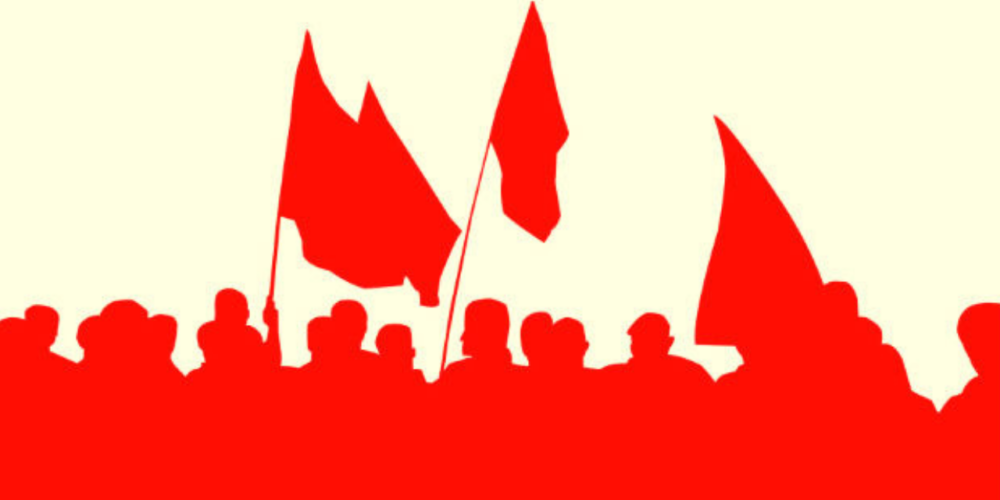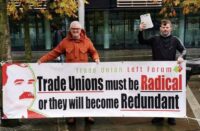Trade unions were born out of capitalism and represent the first steps in the organisation of workers as a class. The main power workers have is their numerical strength: unfortunately, this is weakened by division and lack of unity.
Some of this division is created by union-busting employers who create the narrative that the employer knows best what the workforce needs, and others who seek to sow confusion, lambasting the “ICTU” unions as useless and in the pockets of government and employers. Trade unionism is not a spectator sport, you have to be active to affect change and to be part of the struggle. It involves team work between workers and unions to maximise strength. A trade union is only as strong as the activist members who are driving it. Our class enemies are more than willing to create division among our ranks: it is not in their interest to have a strong united trade union movement.
The ICTU unions, with 43 unions and 800,000 members, are the largest organisation of the working class in the country. These unions represent the vast bulk of workers who choose to join a union because they believe in and trust the unions who have established their credentials among generations of workers through years of struggle.
There are unions who choose to stay outside of Congress. They have varying degrees of success but ultimately most amalgamate with larger unions recognising the strength in numbers. The National Bus & Rail Workers Union (NBRU) with 3,000 members is an effective non-ICTU union. This is largely due to the fact that they have organised in one sector of workers, i.e. in public transport. However, it is likely they will become part of Congress as discussions on amalgamating with Unite are near completion. The Psychiatric Nurses Association (PNA) have had similar success for the same reasons.
However, the Independent Workers Union (IWU), with a few hundred members scattered across multiple sectors dispersed around the country, have been less successful. Despite having had some excellent trade unionists pass through their ranks, success has been elusive, with more time and resources being spent on infighting and rows with other unions than improving working conditions for members.
There are nearly 3 million non-union workers to organise: creating division in existing employments and unions will not build workers’ power. Recruiting those unorganised workers will. This will be done through hard graft in uncharted waters by union activists on the shop floor, expanding into new sectors and not by creating divisions where none exist.
In the 26 counties there are over 2.7 million people employed and almost 900,000 in the North, a combined workforce of over three and a half million. Unfortunately the vast majority of these workers are not members of trade unions. The potential here is enormous to build workers power. Our strength is in our numbers, but with fewer than 800,000 workers in unions this leaves nearly 3 million workers acting as individuals, which only serves one class.
As we go to print, the pilots in Aer Lingus are taking industrial action. In the ongoing war against trade unions there is shock and outrage expressed by politicians, radio presenters and in newspapers across the country at these “very well-paid workers” who we are told are being excessively greedy, using airline customers as cannon fodder for their outrageous demands. Of course, the media are using the same customers as cannon fodder when they interview them provocatively in airport queues to attack unions.
What are these outrageous demands? They are nothing more than a pay rise to keep wages in line with inflation. As always, employers use every opportunity to get more for less. They refuse a pay increase without the workers self-financing them by increasing productivity and, in turn, corporate profits.
The Aer Lingus dispute is a clear case of corporate greed on the never ending merry-go-round of rising profits and cutting costs. Of course, the employer had no problem giving pay increases to their executives of 66% — triple what the pilots are looking for.
Like all industrial disputes, when it is settled the victory is not only the pay increase achieved, but the realisation by other workers that if you organize and stick together you have power.
We are the many and it’s time for the working class to unite and organise as a class. Employers are well organised and know exactly what they want from workers. But they will be no match for 3.5 million organised workers.
We have nothing to lose but our chains.






